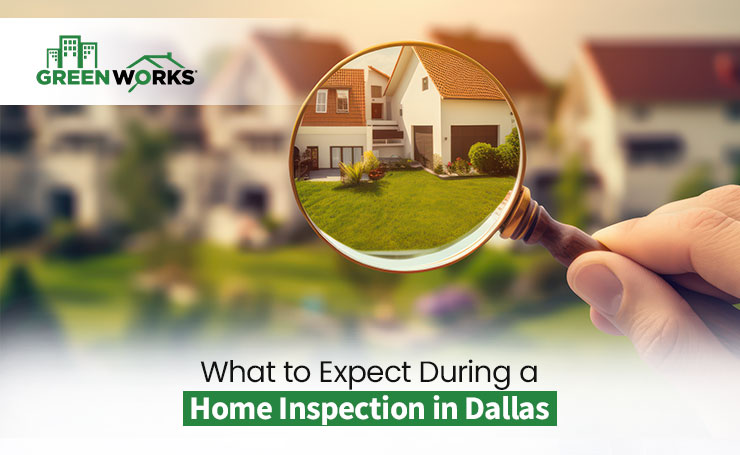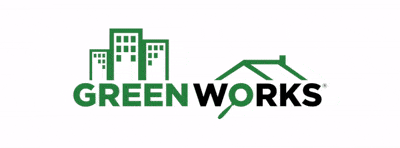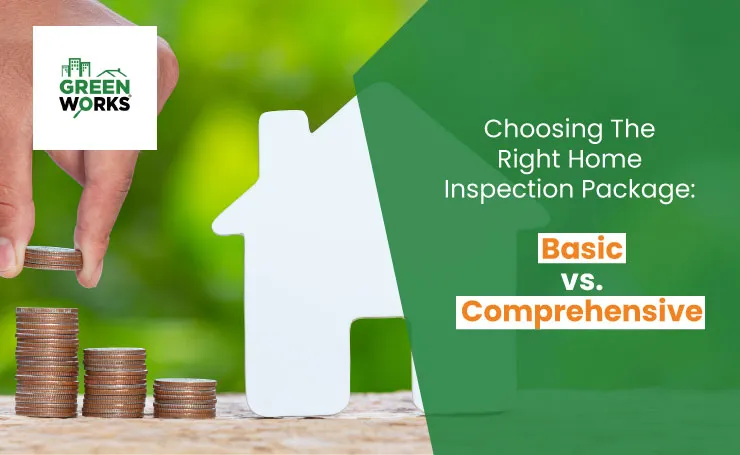Posts

What to Expect During a Home Inspection in Dallas
No house is perfect, not even the ones that are newly built.
It is important to schedule a home inspection and make the investment worth it to avoid selecting a property with issues.
A home inspection is a valuable tool to help look at and document certain home features when previewing.
However, you might still be confused about what to expect during a home inspection for your Dallas home. Read below to get your confusion sorted.
What Is a Home Inspection?
A home inspection is an in-depth evaluation of the home’s systems and structure.
During an inspection, a home inspector will inspect the house from top to bottom. They will evaluate your house’s every area, from the foundation to the roof.
The inspection usually takes place in the presence of the buyer or seller. It often takes quite a few hours to complete.
How long the inspection takes depends on the size of the home, the hidden issues involved, and the home’s overall condition.
A larger house or one with many issues usually requires a longer inspection than a small one or one with few problems.
An inspector will divide the issues into three parts, in which they will:
- Identify issues in the home
- Recommend ways to address any issues
- Capture pictures of the home’s structures and systems to include in the report
What Happens During A Home Inspection?
During a home inspection, a home inspector completes a detailed walk-through in a few hours or more.
During that time, the inspector will take pictures and notes.
Most importantly, the inspector will give an objective opinion on the home’s condition.
They might also think about the child safety issues within the home. But again, the inspector’s experience and competencies play a considerable role here.
And a home inspector doesn’t necessarily determine whether your home complies with building codes.
They also won’t comment on anything appealing unless a more significant problem hides underneath. For example, they may highlight a ceiling stain indicating water damage.
Although inspectors have a keen eye for detail, they still won’t be able to detect the unseen.
That means the hidden pests, asbestos, and other potentially hazardous substances might go unnoticed.
Areas that are hard to access, like the septic tank, won’t be covered. Those sorts of issues will require specialized evaluations.
What to Ask During Home Inspection?
During the home inspection, asking the best questions will give you a better understanding of the home.
These questions should be on home maintenance, the ages of various systems, and how to operate the home. You may also inquire about the house’s overall quality, main water shutoff location, and master GFCI outlet locations.
Below are some of the questions that you can ask during home inspection.
What Is The Condition Of The Roof?
This is one of the most important questions you can ask during a home inspection.
The most apparent roof defects are missing shingles, missing flashing, and curling shingles.
Always ask your home inspector about the roof’s estimated age. But there might be a need for you to ask the seller directly.
For a 3-tab shingle roof, the life expectancy is 15 years. Architectural shingle roofing is around 25 years old.
How Much Attic Insulation Is There?
An inspector might inspect the attic at the end of the inspection. So it is important to make sure they inspect that.
Inspectors frequently find attics with improper or missing, urine-stained insulation because of mice infestation. They may also find fiberglass insulation so old and compressed that it will hardly give any insulating value.
It can be costly to fix the issue if the attic has degraded, damaged, or missing insulation.
What Does the HVAC System Look Like?
During the inspection, the HVAC system is such a critical component. You should be clear on the age and condition.
If the HVAC system is 15-20 years old or older, it will likely need replacement within a few years.
Most good home inspectors will verify the system’s age and remove the HVAC cover. They will also inspect it closely.
Inspectors sometimes might find heavily rusted evaporator coils and mold in the HVAC system.
Do You Notice Any Structural Problems?
Structural issues are a major issue. Often, inspectors will recommend further evaluation by structural engineers.
Common structural issues can be related to oddly sloping floors and improperly cut joists. They may also find issues like foundation cracks and foundation bowing or bulging.
If the home inspector even has a faded idea that there may be a hidden structural issue, they shall recommend evaluation by a structural engineer.
Factors that the Home Inspector Check
An inspector will cover many factors/things during a home inspection. But there are some things that home inspectors give high priority to. These are as follows:
Safety
A home inspector tends to ensure the safety of a house. They usually check ground fault interrupters, and safety glass in bathrooms and stairs.
These are the things that the home inspector gives high priority to. They ensure the home is safe and secure for the future occupants.
Exterior
This is another factor that home inspectors will be inspecting. To inspect the house’s exterior, they will check what protects it from natural disasters and weather. These elements include foundation, drainage, gutters, and intersection of walls and roof.
It is to note that the list doesn’t end here.
Major Systems
The daily functionality of a home depends on many systems. Some important things to check during a home inspection are plumbing, HVAC, and electrical.
In case of damage, the inspector will inspect these systems to see if they need any upgrades.
Roof
The roof, an integral part of the house, is also important for the inspection. Replacing a roof is costly. Moving into a home with a stable roof is essential as it affects your family’s well-being.
Inspectors will inspect the roof to ensure it is not damaged and doesn’t require any replacement.
The Significance of Home Inspections in Dallas
A home inspection in Dallas is crucial in buying or selling a property.
It provides valuable insights into a home’s condition, helping buyers and sellers make informed decisions.
During this process, expect a thorough property examination of the structural elements, systems, and overall safety.
The inspector’s detailed report will serve as a roadmap for necessary maintenance, repairs, and negotiations.
Whether you’re a buyer seeking peace of mind or a seller aiming for transparency, a home inspection in Dallas is an essential investment. This ensures a smooth and informed real estate transaction for all parties involved.
Experience Confidence in Your Property with Greenworks Inspections. Schedule Your Comprehensive Inspection Today and Uncover the True Value of Your Investment!



